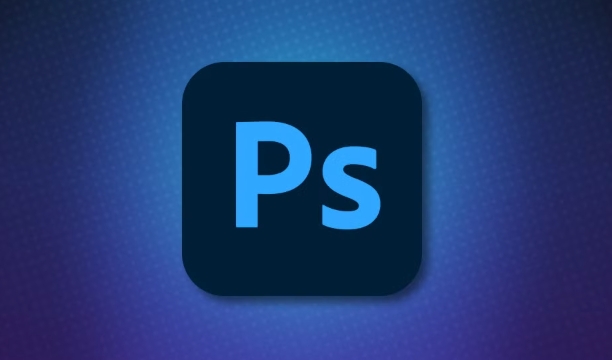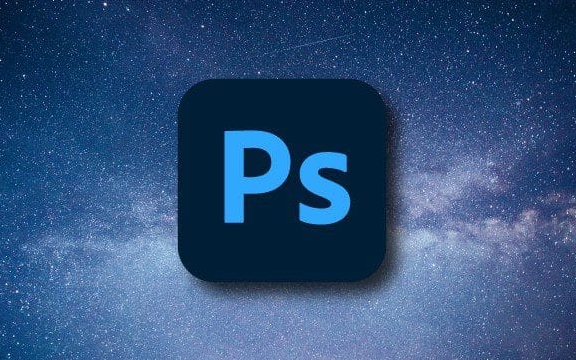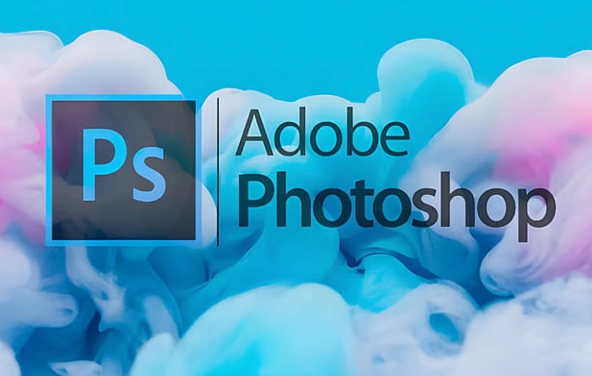How to turn a photo into a line drawing in Photoshop
To convert photos into line drawings and operate in Photoshop, the key is to select the right tool and adjust the parameters. First, use the "Drawing Pen" or "Watercolor Paper" in the "Filter Library" to generate line drafts with one click, which is suitable for quick results; secondly, extract high contrast lines through "channel", copy the channel with the strongest contrast, and use "color level" or "curve" to enhance the contrast, and then invert the phase to obtain a finer line draft; finally, you can combine the "overlay mode" to add gray tone or texture to improve texture, pay attention to controlling the intensity to avoid covering the line draft. Select the appropriate method according to the photo type, recommend the channel method for portraits, and use the filter method for landscape photos. Pay attention to adjusting the brightness comparison in advance during the process to improve clarity.

It is actually not difficult to convert photos into line drawings in Photoshop. The key is to choose the right tools and adjust the parameters. As long as you master the basic process, even beginners can quickly create clean and textured line effects.

Use the Filter Library to quickly generate line drafts
This is the most direct method, suitable for people who don’t want to adjust too many parameters. Photoshop comes with some filters that can produce line drawings with one click.

- After opening the photo, go to "Image" > "Adjust" > "Desaturation" to make the picture black and white
- Then click "Drawing Pen" or "Watercolor Paper" in "Filter" > "Filter Library" > "Art Effect"
- Adjust the options "Stroke Length" and "Light and Dark Contrast" until you see a clear sense of line
Although this method is fast, the lines may not be fine enough and require manual repair in the future.
Use channels to extract high contrast lines
If you want cleaner and professional line drafts, it is recommended to use channels to operate. This approach takes advantage of the contrast differences between different color channels in the image.

- Open the Channel panel and see which channel has the strongest black and white contrast in red, green, and blue.
- Copy that channel as a new document
- Then use "color level" or "curve" to strengthen the contrast to make the lines more obvious
- Finally, I got a line draft similar to a pencil sketch.
This step is a little more complicated, but the effect will be more controllable than the filter.
Combined with "overlapping mode" to enhance details (tricks)
Many people feel that they look too peaceful and have no levels after finishing the line draft. At this time, you can use the overlay mode to add a little gray tone or texture.
- Copy the processed line draft one layer
- Change layer blending mode to "overlay" or "soft light"
- You can add a little more "variety" or import a piece of paper texture material to make the picture more textured
Be careful not to overdo it, otherwise the line draft will be covered and you will not be able to see clearly.
Basically these steps. You can choose the appropriate method according to the type of photo, such as portraits are more suitable for the channel method, and the use of landscape filters is also good. The whole process is not too complicated, but there are several details that are easy to be ignored. For example, it is best to adjust the brightness comparison before desaturation, so that the subsequent line draft will be clearer.
The above is the detailed content of How to turn a photo into a line drawing in Photoshop. For more information, please follow other related articles on the PHP Chinese website!

Hot AI Tools

Undress AI Tool
Undress images for free

Undresser.AI Undress
AI-powered app for creating realistic nude photos

AI Clothes Remover
Online AI tool for removing clothes from photos.

Clothoff.io
AI clothes remover

Video Face Swap
Swap faces in any video effortlessly with our completely free AI face swap tool!

Hot Article

Hot Tools

Notepad++7.3.1
Easy-to-use and free code editor

SublimeText3 Chinese version
Chinese version, very easy to use

Zend Studio 13.0.1
Powerful PHP integrated development environment

Dreamweaver CS6
Visual web development tools

SublimeText3 Mac version
God-level code editing software (SublimeText3)
 What are the key differences between Layer Masks and Vector Masks, and when should each be used?
Jul 16, 2025 am 12:03 AM
What are the key differences between Layer Masks and Vector Masks, and when should each be used?
Jul 16, 2025 am 12:03 AM
LayerMasks and VectorMasks are used in Photoshop with similar uses but different principles. LayerMasks is based on pixels and uses grayscale values to control the display and hiding of layer areas. It is suitable for photo detail editing, soft transition effects and fine brush adjustments, but zooming in may lead to jagging; VectorMasks is based on vector paths and shapes, and has resolution irrelevant resolution. It is suitable for graphics that require clear edges such as logos, icons or text frames, and can be scaled losslessly; the selection is based on the content type (photo or graphics), whether the size needs to be greatly adjusted, and the required edge effects (soft or sharp), and sometimes combined use can give full play to their respective advantages.
 How can vector shapes be created and manipulated in Photoshop?
Jul 14, 2025 am 12:01 AM
How can vector shapes be created and manipulated in Photoshop?
Jul 14, 2025 am 12:01 AM
TocreateandmanipulatevectorshapesinPhotoshop,usetheShapeToolstodrawvectorpathsonshapelayers,editanchorpointswiththeDirectSelectionTool,combineorsubtractshapesusingpathoperations,andrasterizewhennecessary.First,selectthedesiredshapetool—Rectangle,Elli
 What are artboards in Photoshop
Jul 14, 2025 am 12:04 AM
What are artboards in Photoshop
Jul 14, 2025 am 12:04 AM
AnartboardinPhotoshopisamovable,resizablecontainerthatactsasanindividualcanvaswithinasingledocument.Itallowsdesignerstocreatemultiplelayoutsordesignvariationssidebyside,eachwithitsownsizeandcontent.Artboardsareidealforweblayouts,appscreens,banners,an
 What is the purpose of guides, grids, and rulers in achieving precise layouts?
Jul 15, 2025 am 12:38 AM
What is the purpose of guides, grids, and rulers in achieving precise layouts?
Jul 15, 2025 am 12:38 AM
Rulers provide positioning references, Guides implement element alignment, and Grids builds a systematic layout. 1. Rulers display position coordinates, and can drag out reference lines to check element deviations and judge distance specifications; 2. Guides are virtual lines dragged out from rulers, accurately align elements and divide areas, and support locking and color settings; 3. Grids consists of rows and columns to control the overall layout rhythm, and adapt to responsive design, which are common, such as 12-column web page grids and 8px mobile grids. The combination of the three improves layout efficiency and professionalism.
 How does Photoshop's 'Generative Fill' (new AI feature) change the approach to image editing and creation?
Jul 24, 2025 am 01:41 AM
How does Photoshop's 'Generative Fill' (new AI feature) change the approach to image editing and creation?
Jul 24, 2025 am 01:41 AM
Photoshop's "general fill" function has revolutionized image editing and creation through Adobe Firefly and AI technologies, which not only improves speed but also enhances creative flexibility. 1. The background replacement is transformed from a time-consuming manual cloning to an input prompt to generate a natural background matching light, perspective and style; 2. In concept design, users can quickly generate elements such as shelves or plants to build a scene and significantly shorten the early conception time; 3. In terms of image modification, only accurate prompts can be used to achieve complex operations such as removing objects and continuing textures, but the quality of the result depends on the accuracy of prompts; 4. The focus of skills has shifted from traditional tools to effective prompt word writing to make AI collaboration a new core skill. This feature is not a replacement for the original tool but is effective
 How can HDR (High Dynamic Range) images be created and toned mapped in Photoshop?
Jul 15, 2025 am 01:13 AM
How can HDR (High Dynamic Range) images be created and toned mapped in Photoshop?
Jul 15, 2025 am 01:13 AM
TocreateHDRimagesinPhotoshop,firstcapturebracketedexposures(3–5shotsatdifferentlevels)onatripodinRAWformatwithconsistentISO.Next,use“MergetoHDRPro”underFile>Automate,enablealignmentandghostremovalifneeded,resultingina32-bitimage.Thenapplytonemappi
 How to fix skin tones in Photoshop
Jul 27, 2025 am 02:08 AM
How to fix skin tones in Photoshop
Jul 27, 2025 am 02:08 AM
Adjusting skin tone requires four steps in Photoshop: first, use the "Hue/Saturation" adjustment layer to adjust the body tone, select "Coloring" and slightly adjust the hue and saturation and cooperate with local processing of the mask; second, adjust the light and dark levels through "curves", brighten the midtones, darken the shadows and soften the highlights; then use "Optional Colors" to finely correct the color cast in the red, yellow and magenta channels; finally, combine "repair tools", "imitation stamps" and "Gaussian blur" for local modification and softening effects. The entire process should be gradually and carefully observed to ensure natural reality.
 What is the purpose of the History panel and History Brush tool?
Jul 18, 2025 am 12:40 AM
What is the purpose of the History panel and History Brush tool?
Jul 18, 2025 am 12:40 AM
Photoshop's History panel and HistoryBrush tools improve image editing control by recording editing steps and allowing selective restoration. The History panel saves up to 20 operation states in the form of a timeline (customizable), supports jumping to any historical node to restore the entire file, but the record will be cleared after closing the file; HistoryBrush can restore the specified historical state in a specific area, and combines the brush settings to achieve local corrections, such as retaining the facial colors of the character in the desaturation effect. Pay attention to when using it: apply as early as possible, create snapshot backups critical stages, increase flexibility with layer masks, and pay attention to memory usage issues. Although they are suitable for quick adjustments and experimental editing, they cannot be replaced







